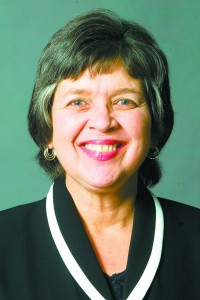by Janet Richards
Larry smiled with darting eyes, his jaundiced teeth glaring against the swarthy tones of his face. The heightened intensity of his movements signaled to everyone in the office that it was time for a smoke. Forty- five minutes had passed since his last foray to the barbeque pit out back. He was right on schedule. With the jerky stride of a man of purpose, he darted into his office behind the front desk to grab his Camels and snake his way to the front door – and none too soon. Larry was about to blow.
It had been exactly one month since Larry accepted the job as director of the homeless shelter and on a number of levels things were imploding. Battered boxes, overflowing with donated clothing slumped in heaps leaving only a narrow swath of carpet through the front room to the exit. Clumps of abandoned duffle bags, dented cans, half empty shampoo bottles and unclaimed mail, the detritus of numerous broken lives, littered every available flat surface. Since Larry assumed the helm, the deluge of disdained donations and discards had continued to pile up, engulfing the facility to the point of pain. Larry failed to notice the mounds of rancid Starbucks pastries and bags of week- old bread rotting on a table across from the front desk or the carpet dandruff, greasy glass and artificial plants caked with grime that added to the disheartening décor. Struggling to appear functional as the new director, he spent most of his time in his office where he retreated to write new policies for managing the minutia of the moment.
But try as he might, things were not going well. The paperwork involved to document every “ding and zing” against the rules had become overwhelming. Plugging the holes to address the actions of the thirty homeless residents of a transitional housing shelter, more often than not weaseling scofflaws trolling for loopholes, was akin to bandaging a system-wide hemorrhage. Problems at the facility were like housework that never ends and Larry’s tenuous hold on competency was wearing thin. Hourly doses of nicotine were his only salvation.
After five minutes at the pit, a medicated Larry waded back through the rubble to his office and slumped into a chair. This space also exuded an ambiance of despair –a windowless room, dominated by a metal desk stacked high with dusty policy binders bulging with information that had long ago lost its relevance. Paper towers of assorted bills and unfinished reports, threatened collapse. A soiled smiley-face mouse pad languished on a table in the corner by two non-functioning computers sleeping in a tangle of cables, cobwebs, and dust.
Larry eyed the crumpled sticky note taped to his coffee mug announcing the latest crisis. “The toilet in the men’s shelter is erupting.” Larry took the news in stride. He’d awoken this morning to find his car windshield shattered by vandals. Chaos was his norm. He expected it. Larry’s rise to power with his new position stood as a single flash of good fortune in an otherwise unfortunate life.
No one smiled the day Larry was born. The product of a surprise pregnancy, he entered a world under the cloak of night in the hinterlands of west Texas, his teenage mother howling –his father a forgotten memory. Like so many of his ilk, conceived in love that came and went, Larry was reared by two dysfunctional uncles and world-weary grandparents who flaccidly stood back and left him to raise himself.
Not that Gramps and Granny Bender didn’t mean well. Larry’s grandprent’s reservoir of patient paternity, as dry as the chalky wastelands surrounding their clap trap home, had been squandered on an entire generation of thankless progeny. Parenthood had been their biggest disappointment.
In the summer of 1942 Earl and Ellie honeymooned at Lake Mead. The glory of their brilliant youth, tanned bodies touching and bright eyes brimming with palpable promise, stood documented by a framed photo on the bedroom dresser. No one suspected what lay ahead –that one day they would give life to three gnarly humans bent on plowing the road to perdition – Larry’s drug addict mother and his nefarious twin uncles.
A sweet portrait of Larry’s uncles at the age of seven, hung over the television. Dressed in cowboy hats and Texas ties, they stared into the camera with toothy grins, their freckled faces beaming. It was hard to reconcile this image with what came later –the twenty-something’s in grungy army fatigues and woolen caps vegging out on Granny’s sofa, eyes cloudy, brains smoked by huffing glue.
Larry’s mother, Bitsy also succumbed to the lure of narcosis. Soon after Larry’s birth she slipped into methamphetamine madness – frying brittle the tender neurons between her cortex and frog brain which eventually made even simple pleasures hard to come by. Over the years Bitsy’s pursuit of sanity, security and sensation had dead-ended down countless rabbit trails, leaving her poor of spirit, penniless and without passion. Periodically sequestered in residential care attempting to remove the monkey from her back, she stayed absent from Larry’s life, surfacing at Earl and Ellie’s only when in need of funds as her spiraled life threatened to spin out and scatter the fragments of her being into the unfriendly universe
Gramps, Granny, Bitsy and the Bender boys formed the motley crew that comprised Larry’s family. They were a flabby bunch with spirits to match. Larry spent his formative years on cruise, spinning in the elliptical orbit of these wobbly role models. It was not an easy childhood.
Larry’s grandparents owned the Beachwood Suds and Duds, and spent their evenings after supper counting quarters from the laundry in their dingy kitchen. After dumping the days takae onto a sticky wooden table, they took their time to carefully stack the coins, apply paper sleeves and plop the fat rolls into the bag to take to the bank. Ellie was in charge of the household finances and every quartered counted.
“Thank God for dirt,” Granny often remarked, as over the years the family eked out a living one twenty-five cent wash at a time.
Grandpa Earl operated his business from a small office in the back of the Laundromat next to an ancient change machine.
“Gotta watch for cheaters,” Earl spouted as he sat in this the stuffy room watching game shows on a tiny TV screen, and munching pork rinds…
The sound of coins clattering in the shoot of the change machine, so like a payout at the slots, gave him false assurance that the business was thriving. But the Laundromat was far from lucrative. The Bender’s were hardly the best of managers.
Grandpa Earl started most days by fashioning a new “out of order sign” for the latest failed machine. “Patrons trash the equipment,” he complained, as the rocking clatter of out of balance washers split the air. An assortment of broken washers and dryers, caked with soap, languished in the long grass behind the shop, their various hoses and belts draped limp over pocked enamel. Bags of orphaned socks and the abandoned ephemera of life loomed large in hulking heaps in the back, waiting to be claimed by owners who had moved on years ago.
Known for his frugality, Gramps kept garbage bags of dryer lint, with plans to use it as insulation for an unnamed building project. As the years passed and the collection amassed, lumpy black plastic blobs spilled out into the main room to greet patrons with an unholy eyesore. Lint infused the atmosphere and wafted out the front door as customers came and went. It gathered in the nooks and crannies of the giant room like fallout from a grove of cottonwood trees coating the top of every washer with a relentless layer of powdered fluff.
The crumbling cinderblock walls, filthy floors, filmy appliances and odor of burnt fabric from clothing left too long in the ancient dryers all contributed to the establishment’s aura of hpelessness. The laundry was downright depressing for all those who came seeking cleanliness. As for the Benders, the seedy ambiance of their store never registered.
Grandma Ellie’s distain for housework was part of the problem. She was a sensitive soul who made time for daydreaming, often at the expense of more pressing matters. Thrust into motherhood at age sixteen, and forced to assume the housekeeping duties that are its part and parcel, Ellie’s nurturing side had burned to ash in a flash of dying passion –her silken dreams snuffed out by a cotton budget, unruly children and the suffocating demands of domestic life.
An unnatural cook, Ellie left most of her culinary work to Chef Boy-Ar-Dee. Her infrequent forays in the kitchen resulted in hideous concoctions created out of desperation–frozen chicken pot pies zapped too long, corn chips doctored with beans and chunks of Spam and cheese-whiz spread on anything to call it dinner. An unnatural housekeeper, her family learned to embrace the squalor of fungus infested bathrooms, food fomenting in the refrigerator and the chaos of dusty clutter. An unnatural parent, she let most things slide, spending her days in a great escape, coddled in romance novels and movie magazines with one eye on the television to keep up a daily litany of soap operas. Standards of cleanliness at the Suds and Duds rarely if ever crossed Ellie’s mind. As could be expected, the needs of young Larry were never front and center.
What little attention Larry mustered came with an investment in a craft he honed at an early age. Larry had a gift with words. Always sharp, he soon mastered the art of imposing his own version of reality on his hapless audiences and manipulating people to suit his needs. It wasn’t hard. With a few carefully composed phrases to play one bleeding heart against another he could snooker the best of them. A lot could be accomplished with a slick phrase, winsome maneuvering and a little whining.
Day by day Larry squeaked out a scruffy childhood from the meager offerings of his elderly grandparents in the dusty halls of their squalid two bedroom trailer, nourished on a diet of corn dogs and baloney and the ever present drone of the television. Pasted to the davenport in front of the tube, his scrawny form blended into the tattered slipcovers, an invisible fixture amongst the heaping masses of unfolded laundry and trash that littered the living room. He showed for school when someone remembered to wake him, sleeping in more often than not, slopping through the years of his childhood like an orphaned shoe without laces, oblivious to what he was missing.
Larry didn’t know his father’s name. This sad admission was delivered glibly over coffee and Danish one morning as he offered a bio on his first day behind the executive desk. Like a patient with a chronic illness rattling off his medical history to a new doctor, Larry recanted the grim details of his sordid past – his vacuous childhood and the oh-so common boondoggles of drugs and alcohol in a world teeming with pawn shops, paternity suits and payday loans that had swept him deep into the cesspool of human existence for most of his adulthood.
He shared it all, item by item, his suicide attempts, sad musings from hell and his slow assent to the top of the tank, which had taken decades to live and seemed longer in the telling. He prattled on in what seemed an earnest attempt to convince everyone that his time on the dark side would somehow help bring light in his position at the shelter. He spoke with the voice of a survivor, adroit at maneuvering what he termed “resources,” These were the skills that had helped him survive his bereft childhood. These were the skills that finally helped him get a grip.
On the oh-so shallow surface he seemed together. Button down shirts, chinos, leather loafers and a forty dollar haircut, that styled his stick straight hair with just the right amount of nonchalance, lent an air of respectability which set well with both conservatives and liberals on the board. Even his car, an aged BMW, with waxy green paint, worked to complete his image as and a struggling up- and -comer as he strove to straddle two worlds.
A photographic memory also served to enhance his packaging. Larry had wowed the crowd at his initial interview. “He’s the one!” George emoted, with way more exuberance than one would expect from someone of his advanced age. As the most labile of all the geriatric members of the board, George was swept away by Larry’s stellar style. His five minute rendition of the text of the fundraising pamphlet highlighting his memory skills was slick with psychobabble. Glomming onto the buzz words of the hour, he peppered his prose with pithy phrases that pandered to a culture of caring. Larry babbled glibly in glittering generalities oozing a mixture of New Age phraseology and vague pseudoscience to imply some real value to what was essentially banal banter. His “holistic approach” included plans to “empower” and “energize” staff . These glossy words soothed with promise to butter his path to the position of executive director. The board was smitten.
But it soon became apparent, at least to some on staff, that Larry’s cloudy past, lingering bad debt and chronically unsatisfied existential needs caused Larry to see all human interactions through the lens of self interest. This particular world- view meant that he could count on the selfish intentions of others no matter what the circumstance. Fearing loss of any kind, Larry felt compelled to work every situation to his own advantage.
Donated day old pastries, which had long been offered at the shelter’s front desk free for the taking, were now meted out by king Larry, on a case -by -case basis. Sweating anxious, he stood over the moldy baked goods with the vigilance of an armed sentry, afraid that someone might abscond with more than one cinnamon roll. Larry paced in obvious discomfort as clothing donations were offered to clients without his approval. His own desire, born out of a lifetime of poverty and unmet needs, seemed wildly out of control, leading him to enact rigid rules to avoid the greed he was so sure would ensue if people were left to divvy the goods on their own. The fact that the shelter was drowning in the copious discards of the community at large had no bearing. Everyone was a rival.
Despite his paranoia, Larry spend days schmoozing select staff. His shtick was “approachability” and a sensitive understanding based on his richly experienced past. He frequently plopped his wiry frame in a chair by counter in the front room, presumably to “brainstorm.” His surface persona, supremely open and amiable, showed not a tint of the shady control that lurked beneath as he sniveled to the board and office powers- that- be to build support.
Tiny crevices in a carefully constructed facade may be apparent only to the most careful observer until like crackled glass the whole pane shatters. Fissures began even before Larry first slithered into the swivel seat in his back office. But most went unnoticed until the early morning in May when Lonnie darkened the door.
Coffee cup in hand, he Lonnie ambled into the shelter and approached the front desk. He was a large man, balding and dressed in a “good old boy” uniform of faded denim overalls, frayed flannel shirt and work boots. All that was missing was the hayseed.
“How’s my favorite secretary” he gushed as he sidled his lumpy body up to the desk, his crass familiarity sparking an overwhelming urge to step back.
“How can Lonnie be of service?”
Leaning over the front counter Lonnie rattled on trying to ingratiate with slick words of woo that only highlighted his burgeoning sleaze factor.
“Time for a little fundraising,” Lonnie barked as made himself comfortable behind the counter and opened the phone book.
“Time to work the phones.” he bellowed.
Larry’s dark face peered around the door jamb to acknowledge his friend’s presence, tacitly endorsing his mission. He returned to his office.
Although Lonnie’s charm flopped at the front counter, it was a hit on the telephone. He took to the job with relish and proved himself amazingly successful. His lumpy form bobbling back and forth in a leatherette desk chair, his voice dripping with phony sincerity, he presented a case for charity to unsuspecting businessmen and women with calculated humility. Phrases like “desperate homelessness” and “urgent need” cascaded from his lips like an uncanny stream of consciousness that persuaded the businesses he targeted to donate their goods and services for the shelter’s “pressing needs.” His pleas were unscripted but polished. One moment he asked for a caulking gun and the next a shower door. Using a system of index cards, he cataloged each contact with the precision of an accountant to lend an air of respectability to his vaguely unscrupulous activities.
At the end of the morning, Lonnie’s laughter, as large as his physical presence, boomed off the walls as he rejoiced in the success of his latest cold call. Back in the executive office, Larry sat at his desk barely able to contain his own glee at the news of Lonnie’s latest acquisition.
A short time later, with no attempt at restraint, Larry hustled to the parking lot to check out the delivery and installation of his new rear windshield, feigning surprise at zero balance on the invoice. Later that afternoon, when someone generously donated a 36- inch flat screen television to the shelter, it was no surprise that the “resource” had made its way into the flatbed of Lonnie’s pickup.
As Lonnie’s truck sputtered for now, the sun glinting off his now intact rear windshield, Larry felt like a king. down the street, Larry took a satisfying drag on his cigarette and looked out on the decaying facility that was his domain. It was hard to contain his joy. He loped back to his office like a man with a new lease on life. There had been witnesses. Yes, at least one of the rooks in the office would have to go. But for now, the sun glinting off his new intact rear windshield, Larry felt like a king.
________
Janet is a nurse who began writing in 2004 when she moved to Idaho from Oreogn. Her creditials include a two year stint as a Town Crier for the Moscow Pullman Daily News. She has written a book called Crossing the
River Sorrow, which is about her experiences as a nurse. It will be published sometime in 2012.









